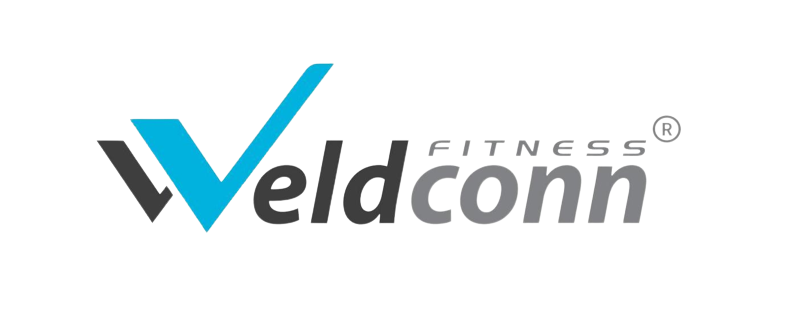
Replenishing Energy After Aerobic Exercise: Key Strategies
2024-10-23 17:00Aerobic exercise is fantastic for cardiovascular health, endurance, and overall fitness. However, to reap the full benefits and recover efficiently, it’s crucial to replenish your energy afterward. This involves hydrating properly, consuming the right nutrients, and understanding your body's needs.

Hydration: The Foundation of Recovery
During aerobic exercise, your body loses significant amounts of water through sweat. Proper hydration is essential to replace lost fluids, prevent dehydration, and maintain optimal bodily functions.
l Water: The simplest and most accessible hydration option. Make sure to drink water before, during, and after your workout. Aim for small, frequent sips rather than large gulps to avoid stomach discomfort.
l Electrolyte Drinks: If you engage in prolonged or intense exercise, consider an electrolyte drink. These beverages contain essential minerals like sodium, potassium, and magnesium, which are lost through sweat. They help maintain fluid balance, prevent cramps, and support muscle function.
Nutrient Replenishment: Carbohydrates and Proteins
After a rigorous aerobic session, your body's glycogen stores are depleted. Carbohydrates and proteins are essential to restore these energy reserves and aid muscle recovery.
l Carbohydrates: These are the primary source of energy during exercise. Consuming carbohydrates post-workout helps replenish glycogen stores. Opt for complex carbs such as whole grains, fruits, and vegetables. These provide sustained energy release and are rich in essential vitamins and minerals.
l Proteins: Proteins are crucial for muscle repair and growth. Including a source of protein in your post-exercise meal can enhance recovery. Lean meats, fish, eggs, dairy products, and plant-based proteins like beans and lentils are excellent choices. A balanced approach, incorporating both protein and carbohydrates, can significantly improve recovery times.
Electrolyte Balance: Beyond Simple Hydration
Electrolytes are minerals that play a critical role in maintaining fluid balance, nerve function, and muscle contractions. Intense aerobic exercise can deplete these essential minerals.
l Sodium and Potassium: These are the most commonly lost electrolytes during exercise. Sodium is pivotal for fluid balance and nerve function, while potassium is essential for muscle contractions. Foods like bananas, sweet potatoes, and spinach are rich in potassium, while sodium can be replenished through electrolyte drinks or lightly salted foods.
l Magnesium and Calcium: These minerals support muscle function and prevent cramps. Incorporate magnesium-rich foods like nuts, seeds, and leafy greens, and calcium-rich foods like dairy products, tofu, and fortified plant milks.
The Role of Timing: When to Refuel
The timing of your post-exercise nutrition can impact recovery. Aim to consume a balanced meal or snack within 30 minutes to two hours after your workout. This window is when your body is most receptive to replenishing glycogen stores and repairing muscles.
l Immediate Post-Workout Snack: Opt for something easily digestible and nutrient-dense, like a banana with a handful of nuts, a smoothie with fruits and protein powder, or a yogurt with berries and granola.
l Subsequent Meal: Follow up with a more substantial meal that includes a balance of carbohydrates, proteins, and healthy fats. This could be a grilled chicken salad with quinoa, a tofu stir-fry with vegetables and brown rice, or a lean meat sandwich on whole grain bread.
Personalizing Your Recovery: Listening to Your Body
Every individual’s body responds differently to exercise and recovery. It’s important to listen to your body’s signals and adjust your nutrition accordingly. If you feel fatigued or notice prolonged soreness, reassess your hydration and nutrient intake.
l Pay Attention to Hunger and Thirst: Your body often signals what it needs. If you feel thirsty, drink water or an electrolyte beverage. If you’re hungry, opt for a balanced snack or meal that includes carbs and proteins.
l Monitor Your Recovery: Keep track of how you feel in the hours and days following your workout. If you consistently feel tired or sore, you may need to adjust your post-exercise nutrition to better support your recovery.
Conclusion: Prioritizing Post-Exercise Nutrition for Optimal Performance
Properly replenishing energy after aerobic exercise is not just about immediate recovery but also about long-term performance and health. By hydrating adequately, consuming the right balance of carbohydrates and proteins, and paying attention to electrolyte levels, you can ensure your body recovers effectively and is ready for the next workout.
Remember, the goal is to create a sustainable routine that supports your fitness journey. Make hydration and nutrient replenishment a priority, and listen to your body’s needs. With these strategies in place, you’ll be well on your way to achieving your fitness goals and maintaining optimal health.
Related: Weldconn Commercial Fitness Equipment;
Weldconn Light Commercial Fitness Equipment;
Weldconn Home Use Fitness Equipment
